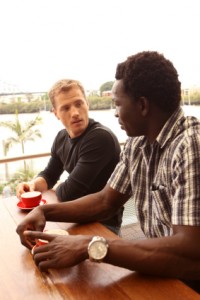 Sponsorship is at the core of 12 Step recovery. A sponsor can be part teacher, part confidant, part guide. Don’t forget that the sponsor benefits as much as the sponsee. There’s a slogan: ‘the best way to keep it is to give it away’. Translation — by helping you, the sponsor strengthens his or her own recovery.
Sponsorship is at the core of 12 Step recovery. A sponsor can be part teacher, part confidant, part guide. Don’t forget that the sponsor benefits as much as the sponsee. There’s a slogan: ‘the best way to keep it is to give it away’. Translation — by helping you, the sponsor strengthens his or her own recovery.
We’ve noticed four qualities that make for a really successful sponsor-sponsee relationship.
First, a sponsor should be accessible. Sponsorship represents a commitment of considerable time and energy. What use is good advice if you can’t reach the person who can provide it? Seek out someone who has the time to relate to you. That’s especially important in the first months of recovery.
Second, a sponsor should have the knowledge you seek. In most cases, the best evidence is the sponsor’s own stable, positive recovery. That’s worth emulating. Don’t pick a sponsor solely because you like them personally. That’s a friend.
Third, a sponsor is willing to be honest with you. That will be especially crucial when you’re feeling defensive. In some ways, this is the most important trait of all. It’s a key part of the sponsor’s role, and it’s not for everybody. There are many kind-hearted, warm, engaging individuals simply cannot bring themselves to confront you when you most need it.
Last, a good sponsor remains focused on recovery. Sponsors, the saying goes, carry the message, not the alcoholic. They’re not there to loan you money, provide free marital counseling, job placement assistance, or psychoanalysis. They are there to guide you into recovery using the Steps.
It’s perfectly OK (but not necessary) to have more than one sponsor. And good sponsors take care not to conflict with professional treatment. Sponsors and professionals may not always agree, but they do need to remain respectful of one another’s role.
Find more Tools for Recovery here.









